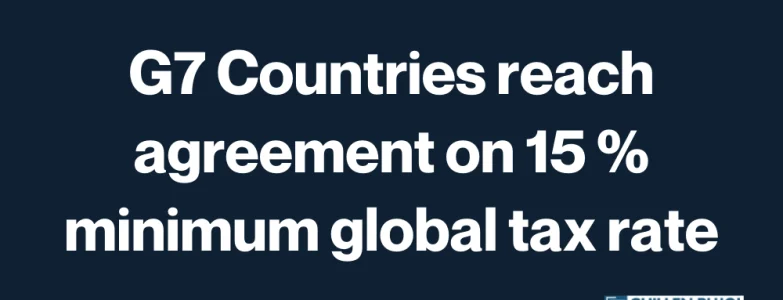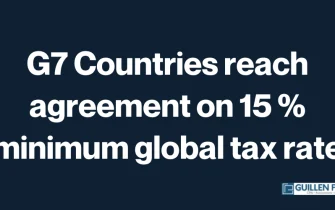Why this matter?
“The Biden administration is seeking to raise the domestic corporate tax rate from 21 percent to 28 percent to pay for its spending priorities, such as infrastructure and education. Republican critics have charged that such a move would lead American firms to relocate abroad, hurting domestic jobs and investment. The international tax agreement begins to give the White House a tool to argue that it can lift domestic tax rates without pushing multinationals to go abroad, because under the agreement they would still face a minimum level of taxation” (Jeff Stein, Washington Post)
The U.S. is expected to give up some taxing rights on multinational digital firms based in America on their overseas profits. In late February, Yellen told the Group of 20 nations that the U.S. has dropped demands to allow firms to opt out of new global digital taxes. That helped pave the way toward today’s deal.
“The G-7 Finance Ministers have made a significant, unprecedented commitment today that provides tremendous momentum toward achieving a robust global minimum tax at a rate of at least 15 percent,” Yellen, who led negotiations on behalf of the U.S., said in a statement. “That global minimum tax would end the race-to-the-bottom in corporate taxation, and ensure fairness for the middle class and working people in the U.S. and around the world.”
“The deal starts what is expected to be a long and arduous process toward changing international tax laws. The agreement is nonbinding and critics have wondered how much of an impact it will have on tax havens dependent on revenue generated by attracting companies through low-tax regimes,” Jeff Stein (Washington Post)











